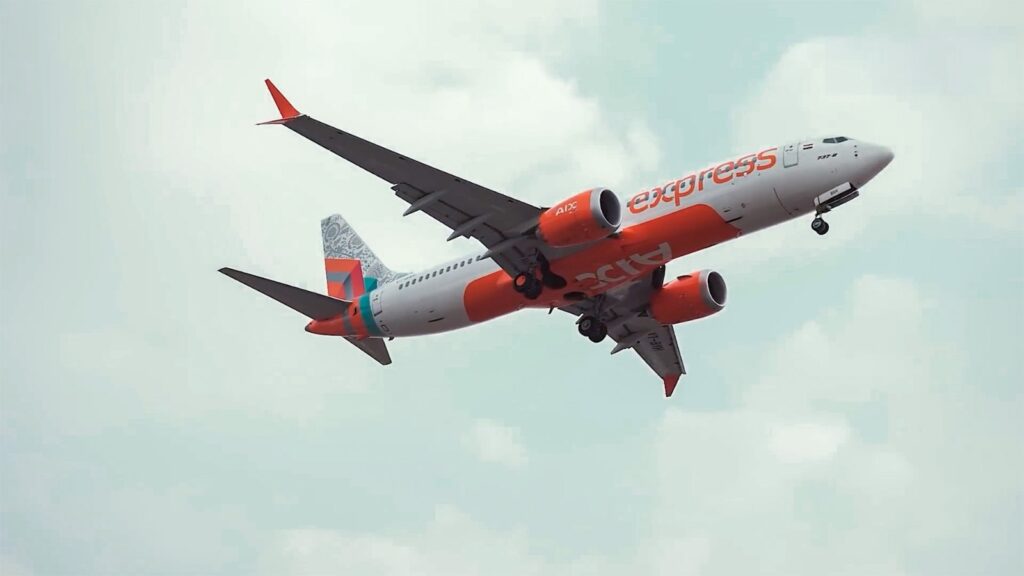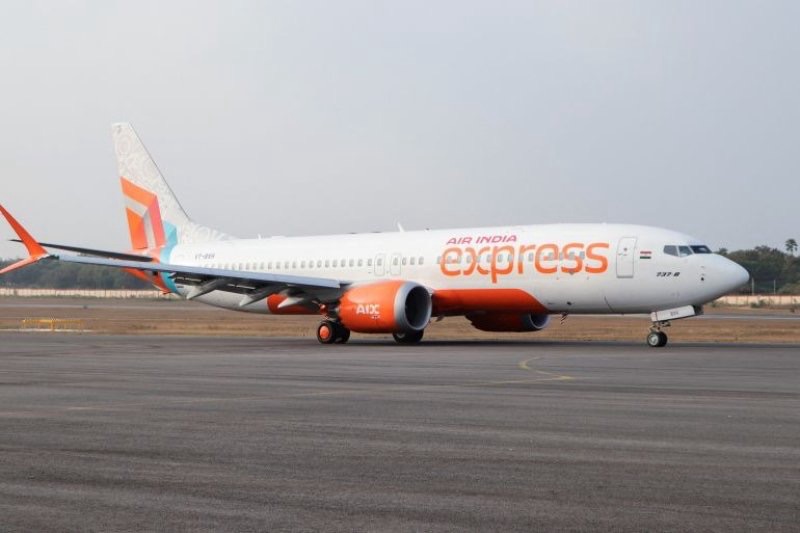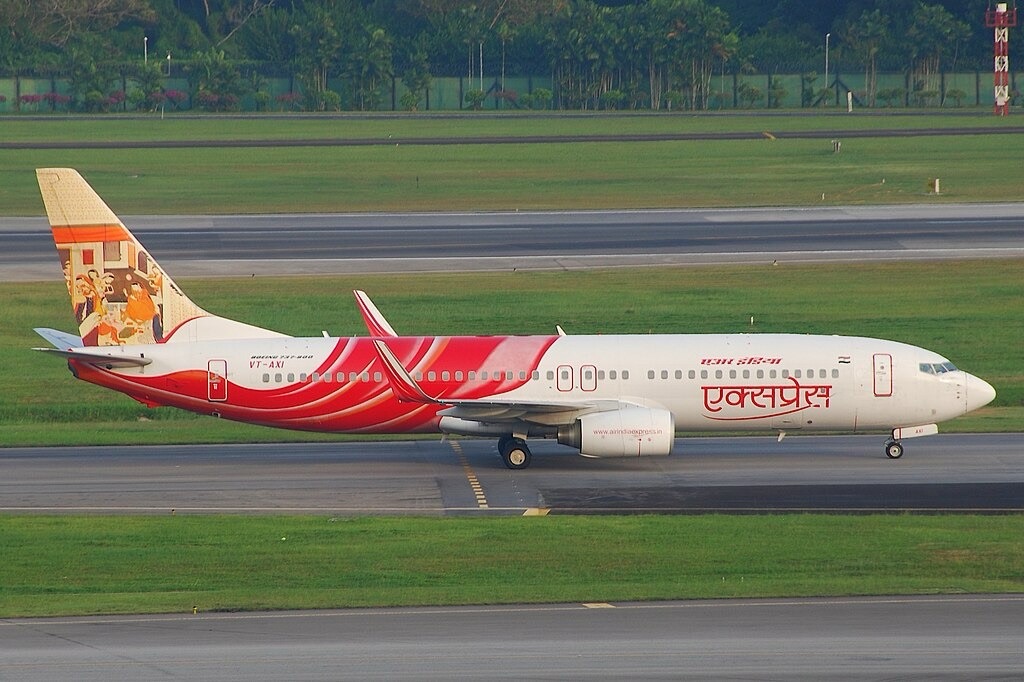The consistent flow of B737 MAX deliveries to Air India Express (IX, Delhi International) is set to conclude mid-year, as Boeing plans to deliver the final aircraft from its backlog that was initially ordered by Chinese airlines,
Since September 2023, Air India Express has been receiving approximately two new B737-8s each month, as Boeing delivers aircraft that were ordered by Chinese operators but never accepted. To this point, Air India Express has acquired 41 of these aircraft, with nine more scheduled for delivery before June 30. After that, Boeing will have emptied its backlog, and Air India Express will need to enter the lengthy delivery queue.

“We’re diligently working to move out all those inventoried airplanes that were completed prior to 2023 and deliver them to [other] customers,” stated Boeing CFO Brian West during March’s Bank of America Global Industrials Conference.
Air India Express operates as the low-cost branch of Air India (AI, Delhi International), both of which are owned by Tata Sons. They hold substantial orders with both Airbus and Boeing and have benefitted from accelerated deliveries by accepting aircraft that other carriers did not take for various reasons.
Excluding the nine B737-8s expected in the next three months, Air India Express has an additional ninety B737-8s and fifty B737-10s on order with Boeing. However, after June, no further deliveries are anticipated until March or April 2026. In the meantime, competitor IndiGo Airlines (6E, Delhi International), which has a significant narrowbody order with Airbus, expects to receive one aircraft weekly during this interval.

Boeing’s latest order statistics indicate that Indian operators have a total of 509 aircraft on order, which includes the ninety-nine B737-8s and fifty B737-10s allocated to Air India Express, ninety-nine B737-10s and 100 B737-8-200s designated for Akasa Air (QP, Mumbai International), 129 B737-8s ordered by SpiceJet (SG, Delhi International), and ten B777-9s and B787-9s procured by Air India.
Shadow Factory
Boeing is preparing to close a shadow factory that it utilized for upgrading the white-tail 737 Max models this summer, following the recent shutdown of a facility that inspected and repaired the larger 787 Dreamliner. The aircraft manufacturer is concurrently working to increase 737 production as it aims to reach a target of 38 jets per month by mid-2025.
“We will defer to our customers for any details on their fleet planning,” Boeing stated in an email reply. Air India and Air India Express have not yet responded to inquiries for comment.
The Air India Group, which holds less than a third of India’s domestic aviation market, has placed orders for a total of 570 aircraft over the past two years, with the orders distributed between Boeing and Airbus SE.
Despite the substantial order, new deliveries of single-aisle planes from Boeing are likely to occur closer to the end of the current fiscal year.

In addition to the white-tail aircraft from Boeing, Air India has also received six Airbus A350-900s that were originally intended for the Russian flag carrier Aeroflot. Furthermore, they have leased 11 Boeing 777s from the market, according to sources.
Transforming India’s Airline Industry with Bold Expansion
Since becoming a part of the Tata Group in 2022, Air India Express has been leading a significant transformation. The airline has grown its fleet from a humble 26 Boeing 737 NGs and 28 Airbus A320s to an impressive total of 100 aircraft—an astonishing leap in just two years.
This bold expansion highlights the airline’s dedication to connecting tier-2 and tier-3 cities with major hubs, creating new travel possibilities for millions. Destinations such as Bangkok, Dibrugarh, Dimapur, Hindon, Jammu, Patna, Phuket, and Port Blair have been seamlessly incorporated into the airline’s expanding network, enhancing connectivity and economic opportunities in previously neglected areas.
A Modern, Fuel-Efficient Fleet Driving Airline Advancement
Fleet modernization remains an essential aspect of Air India Express’ strategic growth. By prioritizing fuel efficiency, cost-effectiveness, and an exceptional passenger experience, the airline is continually investing in cutting-edge aviation technology.
The Boeing 737-8, a symbol of efficiency, offers lower fuel consumption and diminished carbon emissions while ensuring a pleasant travel experience. This investment is in line with the global aviation industry’s focus on sustainability, positioning Air India Express as a significant contributor to India’s shift towards environmentally responsible airline operations.
The Strategic Influence of Bengaluru’s Aviation Expansion
Bengaluru’s Kempegowda International Airport has emerged as a vital hub for Air India Express, acting as a launchpad for the airline’s growing domestic and international routes. With more than 445 weekly flights, the airport serves as a crucial point in India’s aviation network, accommodating both business and leisure travelers.
The introduction of the 100th aircraft at Bengaluru emphasizes the city’s increasing importance in the aviation sector. As a major technology and business center, Bengaluru’s connectivity plays a critical role in driving economic growth and establishing India as a global aviation leader.

Enhancing Delhi NCR’s Aviation Scene with Hindon Airport
By incorporating Hindon Airport (Ghaziabad, Delhi NCR) into its network, Air India Express becomes the first and only airline to operate from two airports within the National Capital Region. This strategic initiative improves accessibility and alleviates congestion at major hubs, providing passengers with greater travel flexibility.
Hindon’s rise as a secondary airport in Delhi NCR signifies an important advancement in India’s aviation landscape, addressing a growing demand for alternative air travel options in one of the nation’s busiest metropolitan areas.
Conclusion
Air India Express has established a new standard for growth, efficiency, and passenger-focused innovation within the airline industry. With a rapidly growing fleet, culturally rich branding, and an evolving route network, the airline is set to transform Indian aviation. As it continues to ascend, Air India Express’ achievement of 100 aircraft stands as a testament to its ambitious vision and commitment to enhancing the travel experience.
As aviation demand increases and India’s airline industry reaches new heights, Air India Express is undoubtedly at the forefront of ushering in a new era of travel.
For all aviation-related guidance (DGCA ground classes, pilot training, cabin crew training)
Contact us https://contrail.in/
phone numbers +91 78457 69399


